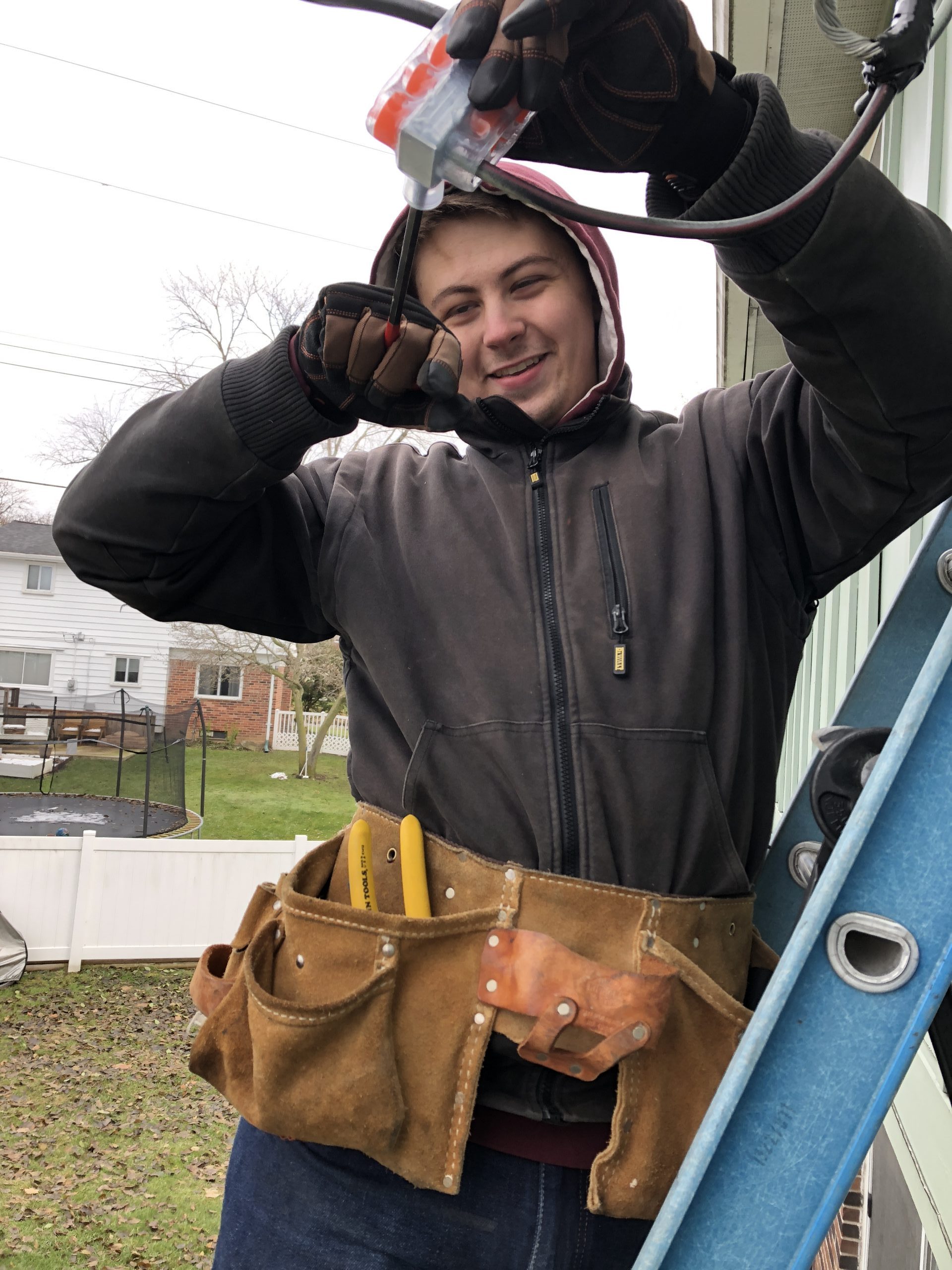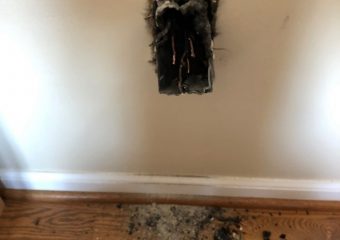When Is It Time To Call The Electrician?
According to Electrical Safety Foundation International, each year electrical problems cause more than 50,000 fires, that for the most part, are preventable. If you haven’t had an electrical checkup of you home, the Consumer Product Safety Commission recommends having a qualified electrician inspect your electrical system every ten years.
Below are 11 signs that you probably should to call an electrician:
- Dimming or flickering lights can be a sign you’re having electrical issues. The light fixtures themselves are rarely the fault and since they only draw a small amount of power. The problem is often caused by large appliances like washing machines or space heaters. Larger appliances that require a lot of energy draw the power, or current, away from your light fixtures causing them to flicker or dim. An electrician can solve this problem by moving the light fixtures to different circuits or by installing dedicated lines for larger appliances.
- Unusual odors can occur after a new appliance is installed but if you continue to smell something that doesn’t seem right or if the smell is coming from an outlet, fuse box or breaker, immediately unplug anything connected to it and call a qualified electrician check it out for you.
- Too many extension cords can lead to potential hazards by creating points where cords can kink, get pinched or short out which may potentially lead to tripped breakers, damaged outlets or a fire. The National Fire Protection Association strongly recommends that extension cords be used only for short term needs such as during the holidays or for a home project. If you find you don’t have enough electrical outlets, call and electrician and have them solve the problem once and for all.
- Sparking from a breaker panel, fuse box or outlet is serious warning sign. If this occurs in your home, an electrician should be called as soon as possible.
- Electrical outlets or switch plates that are hot to the touch should be turned off and whatever is plugged should be unplugged. If the outlet grows remains hot even when things are unplugged, it may be wired incorrectly. Your electrician may advise you to flip the breaker for that outlet until the outlet can be replaced or repaired. Dimmer switches tend to feel warm to the touch and, in the case of dimmers, this might be perfectly normal.
- Older homes need to be inspected and if you live in an older home that hasn’t had the electrical system updated or inspected, make an appointment with your electrician now. Your electrician should do a thorough inspection and replace or update worn out, antiquated or unsafe wiring and circuits to avoid a possible tragedy.
- If you notice rust or moisture around your home’s service panel, this is a cause for concern. Rust or moisture can be a sign that there are additional problems throughout you house that need to be addressed.
- If your electrical wires are covered in cloth covered, call an electrician. These antiquated wires pose a significant risk of fire.
- Buzzing sounds can be caused by loose prongs, outlets or frayed wires. Electricity in supposed to flow quietly between connections, so if you’re hearing a noise, stop using that outlet and call an electrician.
- Frequently blown fuses or tripped breakers when you use a blow dryer or run the vacuum can mean that the circuit is probably being overloaded. Circuit breakers and fuses are designed to trip as a way to prevent overloading. If this is happening to you, call your electrician to discuss adding a new line or upgrading the circuit.
- The outlets in the kitchen or bathroom, or around water, require special shock-resistant outlets called ground fault circuit interrupters. If you don’t have these outlets in your bath and kitchen change them out with GFCIs as soon as possible.
Keep in mind that electrical systems are dangerous to work on if you don’t know what you’re doing. It is very important that only a qualified and insured electrician is hired to ensure your safety and that of your home.

